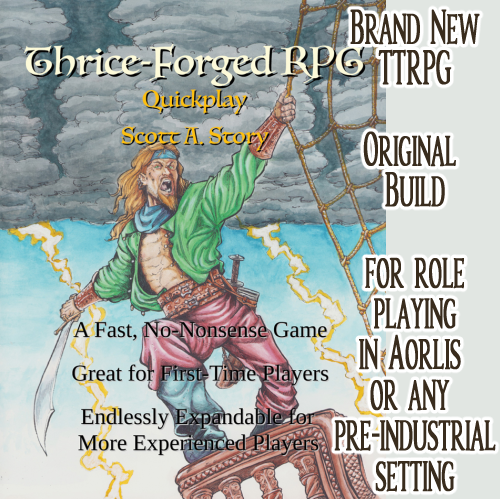Country
The gamemaster may decide your Aorlisian homeland based on his campaign’s needs, or you may choose your own country. If you wish, your home country may be determined randomly with this chart. If the gamemaster is comfortable with the Known World that surrounds Aorlis, he also may allow his players to create characters from those nationalities. It’s easiest to pick one of the eighteen countries within the Empire of Aorlis, and this is the chart:
The character’s country of origin says a lot about the player's character. Follow the link to that country’s Character article, and it will help determine the following:
Language
What languages does the character speak?
Religion
What is the character’s current (or original) religious upbringing? It’s up to the player if his character still follows this faith, or if he has become agnostic, atheist, heretical, or adopted another religion.
Lineage
Is the character fully human, or are there mysterious, non-human elements that might manifest? The gamemaster may decide that inexperienced players are fully human.
colBackground
What sort of background did the character grow up in? There are a variety of different biomes here, as well as urban (see below). This will affect which skills and traits the player may wish to develop. For example, a character who grew up on the high moors will have a different attitude than one who came up in a maritime, or mountain background.
Urban Center
If the character has an urban background, then which city or town? This may be important, because each town has a specific quality that may help inspire the character’s loyalties, interests, and origin.
Dynastic House
If the character is of gentle or noble birth, to which of the families does he belong? This is detailed in the next chapter on social class.
Advantage Pool
If the game system you chose includes rules for feats, boons, talents, or advantages, this is a list to help inform your choices. These individual listings may be called different things in different games, but interpret them as you will. A talent such as cunning, or born-to-the-sea, may be defined (or not addressed at all) in different ways in different games.
Disadvantage Pool
If the game system you chose includes rules for disadvantages, flaws, or quirks, this is a list to help inform your choices. These individual listings may be called different things in different games, but translate them as you will.
Skill Pool
If the game system you chose includes rules for skills, here is a list to guide your choices. If the system doesn’t count individual skills, but simply character class or profession, the skills listed here still can be a guideline for what the character is likely to know or has been exposed to.
Martial Pool
Much like the skill pool, each country’s martial arts and available weapons may serve as a guide for how to outfit your character and choose his martial specialties (if any). Different games are laid out in different ways, but this listing may help you decide how your character begins.
Names
Each country comes with a list of common names. The player may choose from among this list, or simply to invent a name of his own.
Advancement
All of this explains how a character begins, but it doesn’t affect how he develops during game play. Do they pick up different languages? Learn new skills? Change or abandon their religion? That’s wide open. Ultimately, country of origin is a guide, not a set of restrictions.col row












Comments